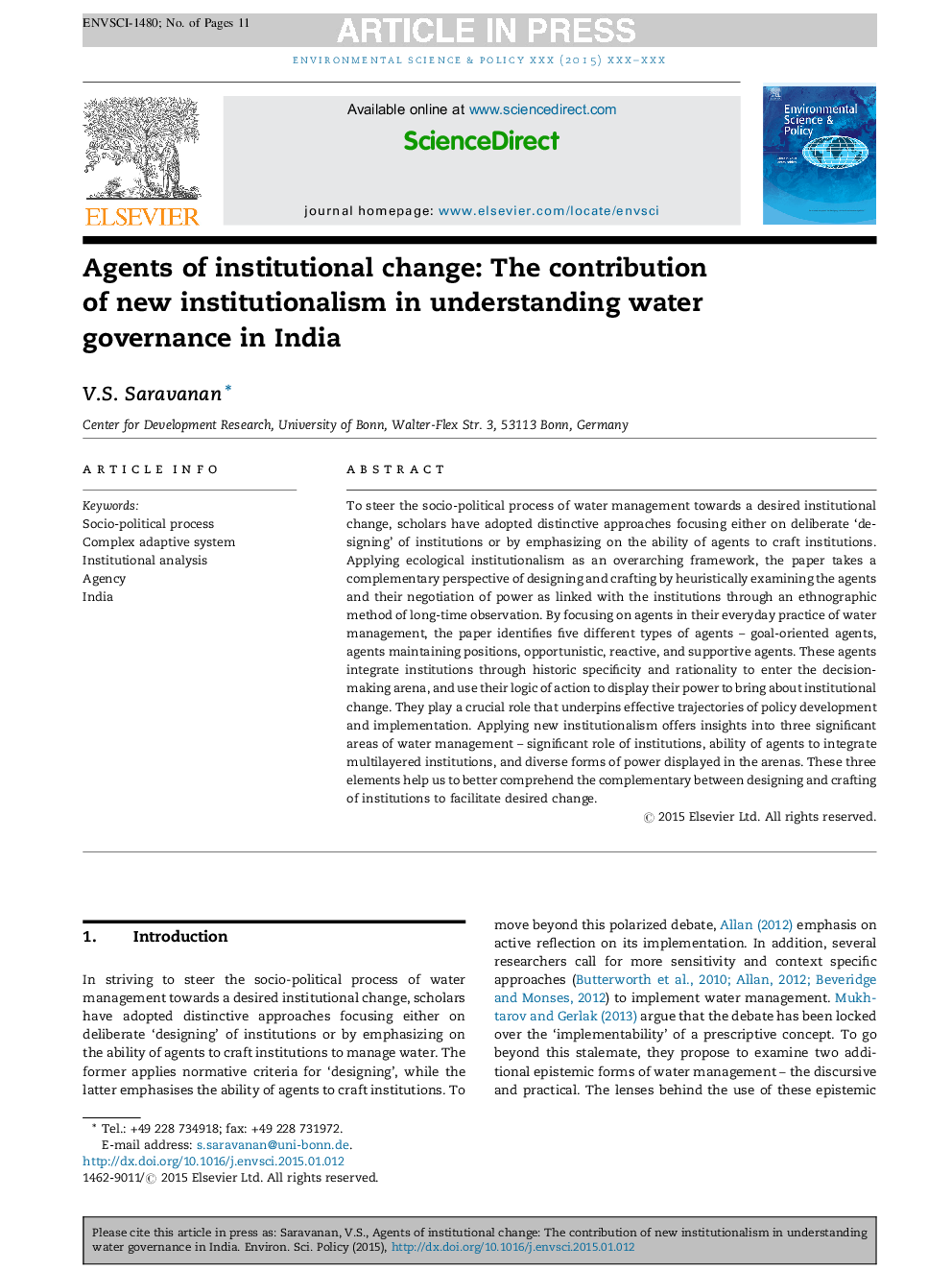| Article ID | Journal | Published Year | Pages | File Type |
|---|---|---|---|---|
| 10504588 | Environmental Science & Policy | 2015 | 11 Pages |
Abstract
To steer the socio-political process of water management towards a desired institutional change, scholars have adopted distinctive approaches focusing either on deliberate 'designing' of institutions or by emphasizing on the ability of agents to craft institutions. Applying ecological institutionalism as an overarching framework, the paper takes a complementary perspective of designing and crafting by heuristically examining the agents and their negotiation of power as linked with the institutions through an ethnographic method of long-time observation. By focusing on agents in their everyday practice of water management, the paper identifies five different types of agents - goal-oriented agents, agents maintaining positions, opportunistic, reactive, and supportive agents. These agents integrate institutions through historic specificity and rationality to enter the decision-making arena, and use their logic of action to display their power to bring about institutional change. They play a crucial role that underpins effective trajectories of policy development and implementation. Applying new institutionalism offers insights into three significant areas of water management - significant role of institutions, ability of agents to integrate multilayered institutions, and diverse forms of power displayed in the arenas. These three elements help us to better comprehend the complementary between designing and crafting of institutions to facilitate desired change.
Related Topics
Physical Sciences and Engineering
Energy
Renewable Energy, Sustainability and the Environment
Authors
V.S. Saravanan,
